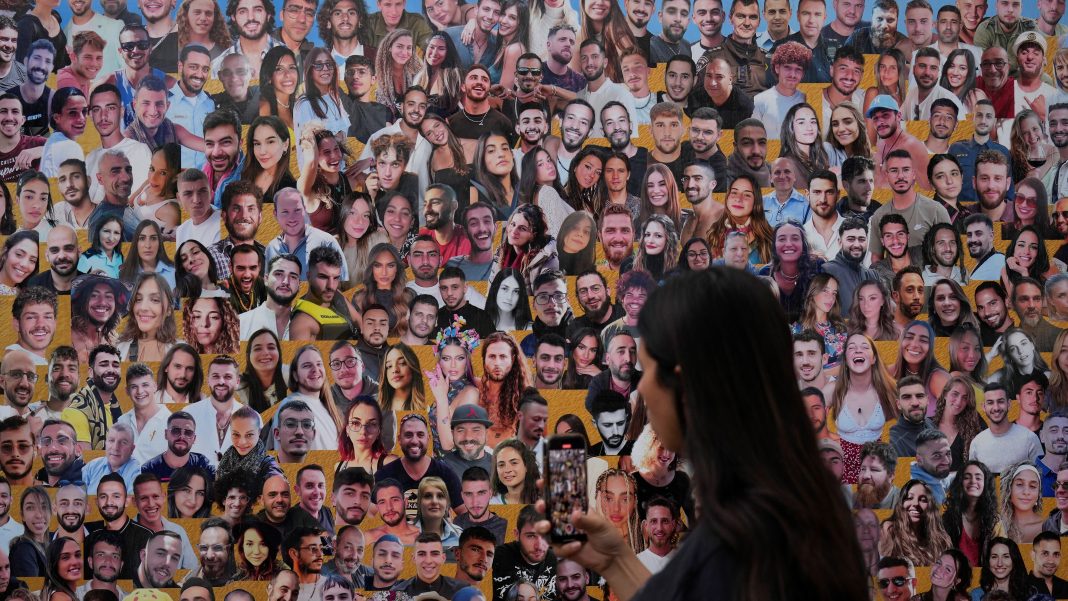On the somber anniversary of the October 7, 2023, Hamas attack—the deadliest in Israel’s history—memorials and vigils swept across the country, marking a moment that indelibly altered the national psyche. This tragic event, which unfolded during a major Jewish holiday, shattered the foundational sense of security that many Israelis had long taken for granted. As the echoes of that fateful day resonate a year later, the nation finds itself grappling with not only the aftermath of violence but also a complex web of ongoing conflicts that threaten to engulf the region.
The attack, which resulted in the deaths of approximately 1,200 people—predominantly civilians—was a seismic shock, catching Israel off guard and prompting deep introspection about its military preparedness and leadership. In the days that followed, the conflict escalated dramatically, evolving into a war in Gaza that has claimed the lives of over 41,000 Palestinians and displaced most of the enclave’s population of 2.3 million. The situation has spiraled into a humanitarian crisis, with widespread hunger and devastation marking the landscape of Gaza.
As the anniversary approached, families of the victims and hostages gathered to honor their loved ones. At the Nova music festival site—where nearly 400 revelers were killed or taken hostage—families united in grief, commemorating the innocent lives lost and the enduring pain of those still missing. The emotional toll was palpable as they played the same trance music that filled the air during the festival, momentarily transporting them back to a night of joy that turned into horror. “When we are here, we are near our loved ones. This is the time they danced and fled,” shared Sigal Bar-On, whose niece was set to marry just months after the attack.
Simultaneously, the specter of ongoing violence loomed large. On the very morning of the memorial, Hamas launched rockets towards Israeli territories, igniting air raid sirens in Tel Aviv and near the Gaza border. The reality of the conflict remains ever-present, with families of hostages—around 100 still believed to be in captivity—gathering to demand accountability and action from their government. The anguish of these families is compounded by the recent news of Idan Shtivi, a young man believed to be alive, whose death was confirmed amid the chaos of the attack.
Official state ceremonies and moments of silence were overshadowed by a palpable sense of frustration and anger directed at the Israeli government. Many felt that the leadership had failed them, both in preventing the attack and in securing the release of hostages. This discontent was expressed at separate gatherings, where families gathered to voice their grievances and call for justice, despite restrictions on large assemblies due to ongoing security threats from Iran and Hezbollah.
As the war against Hamas continues, Israel is also engaged in a new front against Hezbollah, which began its own assaults shortly after the initial attack. The complexities of these conflicts expose the fragility of peace in the region and reflect the broader geopolitical tensions involving Iran, which supports both militant groups. The interplay of these conflicts raises critical questions about the future of Israeli security and the humanitarian implications for Palestinians caught in the crossfire.
The repercussions of the October 7 attack are felt daily, as communities along the border remain on high alert, soldiers are sent into combat, and families mourn for their loved ones. The international community watches closely, with courts examining Israel’s wartime conduct and humanitarian organizations sounding alarms about the catastrophic conditions in Gaza.
In reflecting on this harrowing anniversary, it becomes clear that the path forward is fraught with challenges. The need for dialogue, reconciliation, and a renewed commitment to peace has never been more pressing. As Israelis honor their dead and advocate for the living, they stand at a crossroads—one that will ultimately shape the future of a nation and its relationship with its neighbors. The hope remains that by confronting the trauma of the past, they can forge a way toward healing and understanding, even amid the shadows of conflict.

